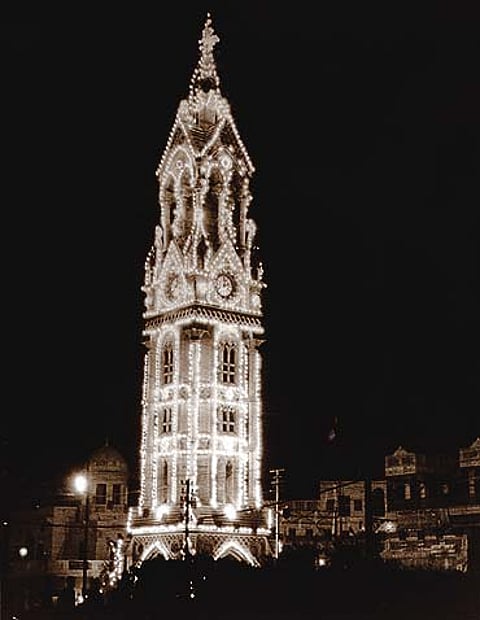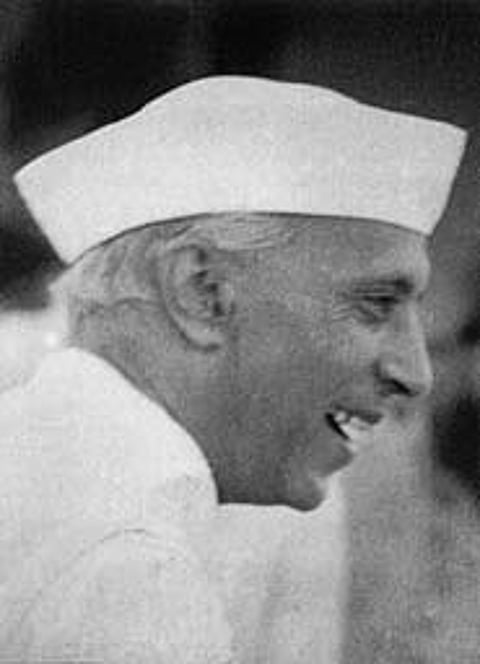The first thing I started hunting for was a camera, but they were hard to come by in those days. I persuaded a friend, a fellow medical student in Ahmedabad, to lend me an old magna slide camera, a family heirloom bought by his grandfather. But in the end, I managed to get hold of two cameras—a professor lent me his brand new Ikonta. Getting film was even more difficult. It was barely two years after the War, and film was either unavailable or prohibitively expensive. Someone suggested I go to the market where surplus war goods were sold. There we managed to lay our hands on a roll used for aerial photography during the War. It was 12 inches wide with paper backing and I had to take it into a dark room to cut it into the regular B2 size.
Sharif and I arrived in Delhi on August 13 morning, and went straight to the Jamia campus where I had plenty of friends. In the evening, I called on Zakir Hussain who also lived on the campus. He was astonished to see me at his doorstep. "What are you doing here?" was his abrupt greeting. "Things are only going to get worse and it's too dangerous for you to be out in the streets at this time." But he soon relented, and even gave me a sheaf of passes to the visitors' gallery of Parliament for the midnight transfer of power session. "Don't take your camera," was his parting advice, "the crowds will be unmanageable."
We got to Parliament House in good time, by 9 pm. But the visitors' gallery was already full, there was no getting in, even with passes. So we made do by standing on the steps, from where we had a good view of the leaders as they entered Parliament. Nehru looked quite grim, despite a large tilak on his forehead and a garland of flowers around his neck. He was the only one looking so colourfully Brahminical, all the rest, including Sardar Patel, were their usual austere selves. By midnight, the grounds outside Parliament House were packed, some 5,00,000 people at least, relentlessly shouting slogans: Gandhiji zindabad, Mountbatten zindabad, Nehru zindabad. But a pindrop silence fell outside when the speeches started. You could barely hear them over the primitive mikes, but many started crying when Nehru gave his 'tryst with destiny' speech. Personally, I thought Sarojini Naidu's speech was more impressive—she was lyrical and spoke like a true poet, but strangely no one remembers her speech at all. I was anxious not to get stranded and so we left before the ceremony ended. We got into a tonga from India Gate, but by the time we made our way to Jama Masjid, we were too late to catch the bus to Jamia.



